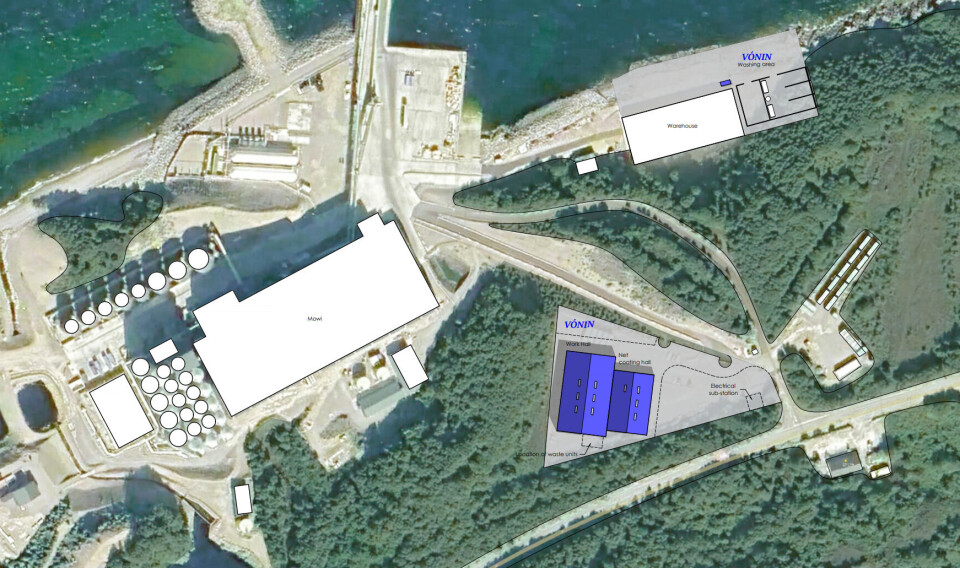
Vonin nets £955,000 in Scottish Government maritime funding round
Aquaculture service and supply company Vonin Scotland Ltd has been granted more than £955,000 by the Scottish Government towards the £3.2 million cost of establishing a facility for washing, servicing, and treatment of fish farm nets on part of the site of salmon farmer Mowi Scotland’s feed plant at Kyleakin, Skye.
The grant to the Faroese company is one of the largest handed out by the government’s Marine Fund Scotland for 2023-24. The Fund aims to fill the gap left after the UK voted to leave the European Union, depriving the marine sector of access to the European Maritime Fisheries and Aquaculture Fund (EMFAF).
Other beneficiaries in the aquaculture sector include Mowi Scotland, which receives £47,000 towards a £157,000 project to test a new system to repel phytoplankton and micro jellyfish, both of which have increased farmed fish mortality in the last two years.
Wrasse recovery
Aquascot, the Alness processor that supplies salmon to upmarket grocery chain Waitrose, gets £105,000 towards the £381,000 costs of increasing capacity and long-term sustainability, and Canadian company East Coast Innovation Inc. receives nearly £14,000 towards the near-£28,000 cost to research, design, and build an innovative prototype solution for the recovery of wrasse used as cleaner fish in salmon pens.
Moffat trout farmer Selcoth Fisheries is granted half of the £387,000 cost of renovating current processes to improve energy efficiency.
Salar Pursuits Ltd, which has developed a patented water-permeable net liner to exclude lice and plankton from salmon pens, receives £112,500 towards the £450,000 cost of a trial of a “bio-resource aquaculture system” which will optimise water conditions for trout and improve fish health and welfare.
Wild salmon conservation
Fisheries Management Scotland, the representative body for Scotland’s salmon fishery boards and charitable rivers and fisheries trusts, receives £151,000 to cover the full cost of using data to help wild salmon conservation, and £129,000 to use environmental DNA (eDNA) technology to establish the presence and absence of invasive pink salmon in Scotland’s waters.
And the Community of Arran Seabed Trust (COAST) is given £11,400 for an analysis to show the long-term potential for the marine protected area to play a role in sustainable inshore fishing, “thus creating/safeguarding jobs in the fishing industry and related industries”.
There is a small, protected area off Arran coast in which fishing is banned, and which is claimed by supporters to provide an effective nursery for wild fish and crustaceans. This claim is contested by the fishing industry.
The biggest grant goes to Seafood Scotland, which gets £1.6 million to promote Scottish seafood in both domestic markets and internationally.
The full list of grants can be downloaded from the Scottish Government website.






















































